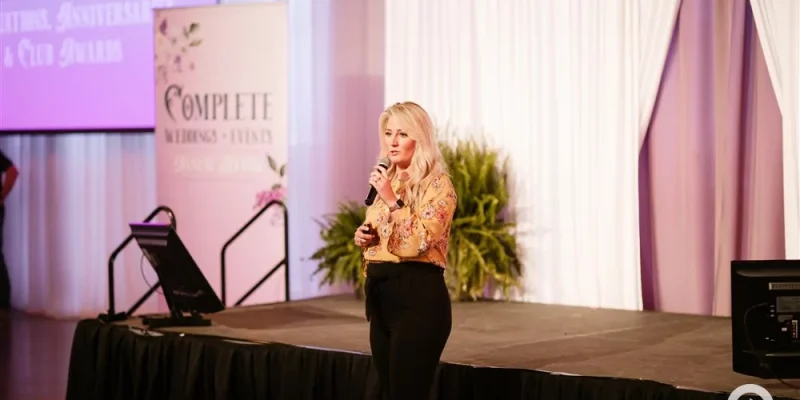Entrepreneurs Who Want to Open a Franchise: Complete Guide to Franchising Success

For entrepreneurs who want to open a franchise, the appeal is clear: instant brand recognition, proven systems, and built-in customer loyalty. But while franchising offers a powerful shortcut to business ownership, it still requires hard work, investment, and strategic planning.
This article explores everything entrepreneurs need to know—from choosing the right franchise and financing it, to understanding legal requirements and achieving long-term success.
What Is a Franchise?
A franchise is a business model where a company (the franchisor) licenses its brand, processes, and support systems to independent operators (franchisees). The franchisee pays an initial fee and ongoing royalties in exchange for operating under the franchisor’s established name.
Famous franchises include:
- McDonald’s
- Subway
- Anytime Fitness
- 7-Eleven
- The UPS Store
Why Entrepreneurs Choose Franchising
Brand Power
You leverage an already trusted name with a loyal customer base.
Proven Business Model
Avoid the risks of starting from scratch with established operating systems and procedures.
Training and Support
Most franchisors offer ongoing training, marketing, and operational assistance.
Faster ROI Potential
Franchises often see quicker profitability due to optimized models and marketing.
Easier Financing
Banks are more willing to fund known franchise brands compared to unknown startups.
Types of Entrepreneurs Who Benefit from Franchising
- First-time business owners looking for a low-risk entry
- Corporate professionals transitioning into business ownership
- Semi-passive investors seeking manager-run models
- Multi-unit operators aiming to scale quickly
- Niche specialists wanting to run industry-specific brands (e.g., health, tech, education)
Steps to Open a Franchise
Self-Assessment
Ask:
- What industries am I passionate about?
- How much capital can I invest?
- Do I want hands-on or absentee ownership?
Research and Choose the Right Franchise
Use directories like:
- Franchise Direct
- Franchise Gator
- IFA (International Franchise Association)
Look for:
- Strong brand reputation
- Proven track record
- Reasonable fees
- Solid training and support
Understand the Franchise Disclosure Document (FDD)
The FDD includes:
- Startup costs
- Ongoing fees
- Franchise obligations
- Performance data
Tip: Always consult a franchise attorney to review the FDD.
Secure Financing
Explore options like:
- SBA (Small Business Administration) loans
- ROBS (Rollovers for Business Startups)
- Franchise financing programs
- Bank loans or investor capital
Location and Setup
Depending on the franchise, you’ll need to:
- Lease commercial space
- Order branded equipment
- Hire and train staff
Attend Franchise Training
Most brands provide 1–4 weeks of training covering:
- Marketing
- Operations
- Hiring
- Technology
Open Your Doors
Coordinate a soft launch or grand opening with marketing support from the franchisor.
Costs Involved in Opening a Franchise
| Cost Category | Typical Range |
| Initial Franchise Fee | $10,000 – $50,000 |
| Build-out & Equipment | $50,000 – $500,000+ |
| Marketing Launch Costs | $5,000 – $25,000 |
| Working Capital | $10,000 – $100,000 |
| Royalties | 4% – 10% of revenue |
Pro Tip: Check Item 7 of the FDD for exact costs.
Challenges Entrepreneurs Face in Franchising
- Lack of flexibility in decision-making
- Ongoing royalty and marketing fees
- Saturation risk in highly competitive markets
- Pressure to follow strict systems
Success in franchising means balancing independence with compliance.
Top Industries for Franchising in 2025
- Food and Beverage: Still strong, especially niche and delivery-focused models.
- Fitness and Wellness: Gyms, yoga studios, cryotherapy clinics.
- Home Services: Cleaning, landscaping, pest control.
- Education & Tutoring: Test prep and enrichment services.
- Pet Services: Grooming, boarding, and pet food delivery.
Franchise vs. Starting Your Own Business
| Factor | Franchise | Start Your Own |
| Risk | Lower | Higher |
| Brand Recognition | Instant | Requires time |
| Cost | High initial fees | Flexible, varies |
| Control | Limited | Full |
| Support | Extensive from franchisor | Self-managed |
Best Tips for Entrepreneurs Opening a Franchise
- Interview existing franchisees for real-world insights.
- Start with a franchise that matches your lifestyle, not just your budget.
- Hire staff early to reduce pressure during launch.
- Track KPIs (profit margins, customer acquisition cost, retention).
- Stay engaged with the franchisor’s network and updates.
Conclusion
For entrepreneurs who want to open a franchise, this business model can be the perfect blend of structure and opportunity. With the right research, funding, and commitment, you can fast-track your journey to successful business ownership while minimizing the risks associated with traditional startups.
Whether you’re looking to invest in a fitness brand, open a coffee shop, or run a service-based business, franchising can help you build a future with freedom, profit, and brand power.
FAQs
1. What is the average cost to open a franchise?
Most franchises require a total investment between $100,000 and $500,000, depending on the industry, location, and size of the business.
2. Can I own a franchise without business experience?
Yes. Many franchisors provide comprehensive training and support, making it ideal for first-time entrepreneurs.
3. How long does it take to open a franchise?
The process usually takes 3 to 9 months, including research, financing, site build-out, and training.
4. Are franchise owners considered self-employed?
Yes, even though you operate under a brand name, franchise owners are independent business operators.
5. Do I need a lawyer to review franchise documents?
It’s highly recommended to consult a franchise attorney to review the Franchise Disclosure Document (FDD) and franchise agreement.
Also read: How to Handle a Bully Manager: Proven Strategies to Protect Yourself and Thrive











